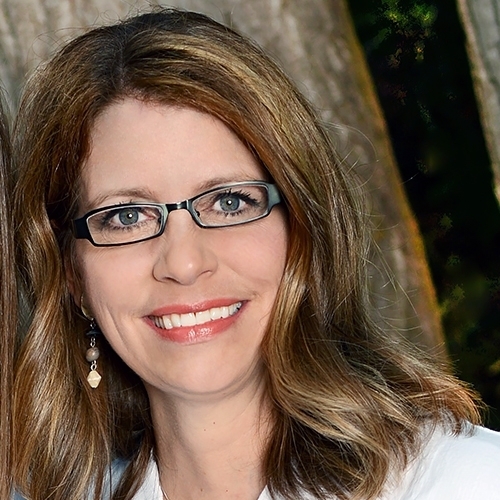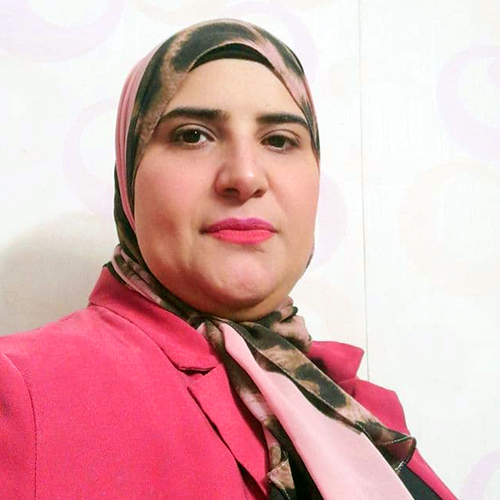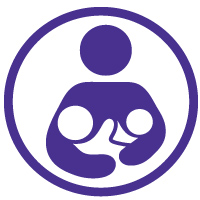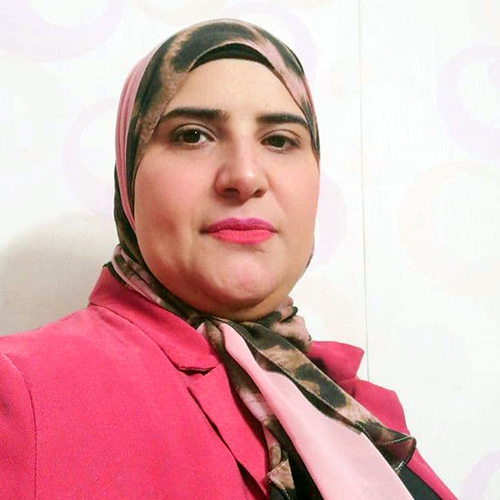 Lactation & Breastfeeding Online Course(s) & Continuing Education
Lactation & Breastfeeding Online Course(s) & Continuing Education
Access the latest clinical skills and research for Lactation & Breastfeeding for professional training. These Lactation & Breastfeeding online courses provide practice-changing skills and valuable perspectives from leading global experts. This Lactation & Breastfeeding education has been accredited for a variety of CEUs / CERPs and can be accessed on-demand, at your own pace.

Mothering Experiences: The Development of Self-Efficacy in First Time Mothers

Eithne Murray developed a passion for breastfeeding as a result of her own experience as a mother – a passion she did not know she had. She initially trained as a breastfeeding counsellor with NCT in the UK and, upon moving back to Ireland, trained as a breastfeeding counsellor with Cuidiú-the Irish Childbirth Trust, later becoming a tutor. She qualified as an IBCLC in 2009, and worked privately for a while. She now works predominantly in education. This presentation was based on the research undertaken for a dissertation on transition to motherhood as part of her studies for a Masters degree.
Aims: The aims of this study were to explore the role of education and support in the development of self-efficacy in first-time mothers during the transition to motherhood.
Methodology: Using a qualitative approach, first time mothers, whose babies were less than 15 months old, were recruited from among women who had attended various models of antenatal classes They took part in a semi-structured interview on their experiences and personal constructs relating to the perceived quality of support they received were then elicited.
Findings: Becoming a mother was a process that held great meaning for all the mothers. For the women interviewed, breastfeeding was both a practice and a process which held meaning for these women. The impact of the various forms of antenatal classes in developing self-efficacy for all parental tasks is explored. The elicitation of personal constructs provides a novel format for women to evaluate the quality of the support they received – a topic which has been seldom researched.

View Details / Enroll

View Details / Enroll


Dr. Bond is a trained laboratory and social scientist currently studying the social and public health impacts of shared human milk. Specific areas of interest include development of the microbiome of the infant, immunological responses from the parent and infant, impacts of non-parental human milk on development of the immune response and microbiome, and risk abatement practices by participants in private arrangement milk sharing. She has been specifically trained in health disparities sciences and engages in research with a perspective on social justice, gender equity, and health equity. As a Hawaiian and Cherokee heritage scholar, she has a particular passion for colonial impacts on infant care and feeding practices.
In the absence of adequate banked donor human milk for distribution to all infants in need, many families choose to engage in the practice of Private Arrangement Milk Sharing (PAMS), partially facilitated through social media, to procure human milk for their infants. Evidence regarding the participant and infant characteristics, and risk abatement practices is limited. This presentation explores the state-of-the-science of PAMS, characteristics of recipient participants and infants, donor screening practices, and risk abatement strategies. Results are contextualized with a socioecological framework of factors affecting infant feeding practices. Influence of health care providers, lactation support, birth attendant, and sources sought during decision making and the impact of these influences on supporting families are discussed.

Neuroanatomy and Biomechanics: Breastfeeding as a First Movement Milestone

Allyson is a physical therapist, International Board Certified Lactation Consultant and co-owner of Nurture Columbus, in Columbus, Ohio. She completed a Bachelor’s degree in Biology from Ohio University in 1997, and Master of Physical Therapy degree from Northwestern University in 1999. After having a child in 2007, she volunteered as a La Leche League leader. She discovered a love for supporting new parents but a gap in lactation care, which led her to become an IBCLC in 2014. Her clinical approach to identifying and overcoming feeding challenges is unique with physical therapy foundations in posture, movement and reflexive function. Through presentations she endeavors to engage IBCLCs to know more about movement as related to human lactation, and PTs to learn about breastfeeding/chestfeeding as related to human development. As past-president (2019-2021) of the Ohio Lactation Consultant Association, she also advocates for equitable access to and health plan coverage for lactation care.
Topic: Neuroanatomy and Biomechanics: Breastfeeding as a First Movement Milestone - [View Abstract]
Knowledge of neuroanatomy, reflexes, and biomechanics as related to breastfeeding/chestfeeding is essential to IBCLC competency. This presentation will define breastfeeding/chestfeeding in terms of posture, movement, and reflexive function. Examples of neuromuscular dysfunction that impair breastfeeding will be provided. Strategies for treating neuromuscular dysfunction that impedes movement essential to breastfeeding/chestfeeding success will be reviewed along with new research on how participation in infant movement group classes facilitated maternal confidence in breastfeeding/chestfeeding. Presented by an IBCLC who is also a physical therapist, this presentation explores how breastfeeding/chestfeeding should be considered a first movement milestone fostered through interactive tummy time at the most basic and often effective level, and in need of more definition as such across the healthcare continuum. While alerting other healthcare professionals to this definition can help improve support for it, IBCLCs should be the clinical expert in its assessment and treatment as a foundation to collaboratively solving more complex movement impairments that challenge breastfeeding success.

View Details / Enroll

Neurologic Conditions and The Breastfed Infant

Ellen is the lactation services manager at Intermountain Healthcare Primary Children’s Hospital. She has a Master’s Degree in Public Health Nutrition, is a Registered Dietitian and an International Board Certified Lactation Consultant. Ellen has the unique advantage of using her nutrition knowledge as a lactation consultant. She has a passion for providing human milk for patients with nutritional challenges such as chylothorax and colitis. Her work on fat free human milk is published and has received national review. One of her career goals is to increase knowledge of nurses and healthcare providers regarding human milk immunology and breastfeeding thus improving lactation duration. Ellen has worked with the special needs breastfeeding dyad for the past 20 years at Primary Children’s Hospital to promote breastfeeding and human milk feeding. She designed, set up and manages the Mothers Milk Center at Primary Children’s hospital which opened in 2015. Ellen has presented at local, state and national meetings. She also has experience working at a corporate level with lactation consultants developing breastfeeding policies and protocols as well as lactation education programs for nurses and health care professionals.
Neurologic conditions often have a significant impact on the breastfeeding/chestfeeding dyad. The majority of these conditions are congenital, however some may be acquired during the first year of life. Breastfeeding/chestfeeding management of the hypotonic and hypertonic infant will be discussed. Hypotonic neurologic conditions that will be reviewed include floppy infant syndrome, infantile botulism, medullary lesions, Prader-Willi Syndrome and Trisomy 13, Trisomy 18 and Trisomy 21. The hypertonic neurologic conditions cerebral palsy and drug exposed infant will be discussed along with neural tube defects and Congenital Zika Syndrome. Case studies of special needs babies with these neurologic conditions will be presented.

Neuromusculoskeletal Disorders in the Breastfed Baby: Causes, Assessment, & Treatment

Dr. Valérie Lavigne graduated from the Canadian Memorial Chiropractic College in 1998. In July 2005, she became an IBCLC, the first chiropractor in Quebec with the title. She has her fellowship in pediatrics from the International Chiropractic Pediatric Association and has graduated in November 2014 with a Master of Science in Pediatric Musculoskeletal Health from the Anglo-European Chiropractic College. She is working in private practice in her chiropractic clinic in Kirkland, Quebec.
How comfortable are you at identifying neuromusculoskeletal issues in babies. This lecture will explore the triad aspect of breastfeeding – neurological, muscular and skeletal. A review of the causes, main conditions combined with tips to help you recognize neuromusculoskeletal issues will provide you with a more astute eye during your evaluation. Treatment options will be reviewed in addition to a review of the chiropractic and lactation literature. This lecture should create awareness amongst health professionals about the importance of treating neuromusculoskeletal issues in baby to optimize breastfeeding!

View Details / Enroll


Dr.Fayrouz Essawy Pediatrician, Neonatologist, IBCLC • Neonatology Consultant • Bachelor of Medicine and surgery - Cairo University 2004 • Master degree of pediaterics - Ain shams University 2012 • Egyptian neonatology fellowship 2015 • IBCLC 2015 • LCCC course instructor & developer 2016 • Breastfeeding medicine specialist. • Baby friendly coordinator. • Harvard Graduate of Training of trainee program 2020. • Member of the Egyptian Society of Pediatrics • Member of the Egyptian lactation consultant association (ELCA) • Member of the academy of breastfeeding medicine (ABM) • Member of the international lactation consultant Association (ILCA)
The feeding of breast milk during the NICU admission reduces the risk of short-and long-term morbidities especially in premature infants. Breastmilk provides immunological, anti-infective, anti-inflammatory, epigenetic, and mucosal membrane protecting properties. The mechanisms by which human milk provides its protection are varied. These mechanisms include immunological and specific unique human milk components that are not present in formula. Thus, the feeding of mother’s own breastmilk should be a NICU priority and every NICU should have a breastmilk storage and handling policy. In this presentation we will discuss how we can counsel parents about the infection control measures and guidelines related to storage, handling and administration of breastmilk to babies in the NICU. Learn more about hospital grade pumps, pumping at home vs pumping in hospital setting, prevention and management of potential mistakes such as giving a child another mother’s milk and how to handle and store fortified breastmilk.

View Details / Enroll

Nitty Gritty Anatomy: The Cranium, Supporting Structure and the Muscle Layer

Dr. Gerner has been a Maternity and Pediatric Specialist in private practice for over 17 years with an additional focus on functional infant cranial work. She teaches other professionals to support breastfeeding across the USA and internationally. She is a wife, mother of 3 grown children, and lives in Northern CA with her husband and their 2 rescued dogs.
Topic: Introductions and Establishing the Value of Integration - [View Abstract]
Topic: Nitty Gritty Anatomy: The Cranium, Supporting Structure and the Muscle Layer - [View Abstract]
Topic: Tying It All Together- Consequences of Pathology and Ideal Collaboration - [View Abstract]
Understanding the specific infant anatomy related to feeding function can unlock the mystery of why the baby is struggling and how to correct the problem. You will see very comprehensive video demonstration of normal function and easy to understand diagrams of common subluxation patterns. This presentation focuses on: (1) The infant cranial and spinal anatomy piece by piece and how it all interacts together; (2) The main muscles of breastfeeding function; (3) clinical presentations of common feeding challenges explained through the anatomy; and (4) correlations into other common infant pathologies of torticollis and Otitis Media.

Nursing A Preemie, Perspectives For Lactation Supporters and Professionals

Paulina is the mother of three multicultural Latino children and Project Director for Lifespan Local. Paulina earned her BS in Psychology from the Pennsylvania State University, a MS in Organizational leadership from the University of Denver and is completing her PhD in Health and Behavioral Sciences at the University of Colorado - Denver. Paulina has over 18 years of experience working with families with young children. As a Maternal Child Health specialist for Jefferson County Public Health, she developed a NICU follow-up home visitation program and the pediatric emergency preparedness plan, co-founded and coordinated the Conectando Network (former Adelante Jeffco), established community navigation and lactation support groups focused on the Latino Spanish speaking community, and lead other initiatives to support leadership and partnerships among communities and organizations. During the COVID-19 pandemic, she managed the new program Whole Community Inclusion to ensure the pandemic response and recovery implementation included health equity practices that recognize the needs and the strengths of priority populations in the county. Her areas of current work include promoting perinatal and infant mental health along the continuum of care; building community capacity to navigate health and education systems; facilitating organizational change to embrace linguistic and culturally responsive practices; and establishing community-placed participatory programs to strengthen communities. She likes to be with people, learn from and with others, and connect passions for meaningful work.
Topic: From the NICU to the home: mother’s experiences - [View Abstract]
Topic: Leadership Skills in Lactation: Make Extraordinary Things Happen - [View Abstract]
Topic: Liderazgo en Lactancia - Para Alcanzar Metas Extraordinarias - [View Abstract]
Topic: Nursing A Preemie, Perspectives For Lactation Supporters and Professionals - [View Abstract]
In this presentation participants will learn about parents’ experiences with feedings in the NICU and continuation of lactation after going home, the importance of parent-child mutual-regulation and its implication in feeding success, strategies for lactation professionals to support the nursing relationship, and infant mental health concepts in relationship to feeding.
This presentation will include qualitative and quantitative data to broaden participants understanding of the context of lactation with a premature baby or a baby with special medical conditions. The participants will also receive information about multidisciplinary approaches and initiatives to support families with preemie babies.

View Details / Enroll

View Details / Enroll

Optimizing the Feeding Abilities of Premature Infants to Support Breastfeeding

Robin P. Glass, MS, OTR, IBCLC practices occupational therapy at Seattle Children's Hospital in Seattle, WA and is an Assistant Clinical Professor in the Department of Rehabilitation, at the University of Washington. Her clinical specialty is the treatment of infants, with a strong focus on feeding and swallowing issues. She provides treatment for hospitalized infants including the NICU with a wide range of medical and developmental diagnoses. She is NDT trained and is a 20 year Board Certified Lactation Consultant. Robin has extensive national and international experience speaking about infant feeding.
Robin has received numerous awards including the National Association of Neonatal Therapists (NANT) 2015 Pioneer Award and the 2018 Nancy Danoff Spirit of Service award from the Breastfeeding Coalition of WA and Nutrition First. Robin has co-authored numerous journal articles as well as the book Feeding and Swallowing Disorders in Infancy: Assessment and Management.
Topic: Optimizing the Feeding Abilities of Premature Infants to Support Breastfeeding - [View Abstract]
For the baby born prematurely, learning to breast/chestfeed may be more complex. There are factors related to the infant, the environment and to the lactating parent that can make this process more challenging. Many babies often leave the NICU not fully breastfeeding and continue to struggle once at home. This presentation will describe, evidence-based approaches to developing breastfeeding in the premature infant. It will review developmental and co-morbid factors affecting the infant’s feeding acquisition and describe interventions that can be used to improve breastfeeding skill.

View Details / Enroll

Our Hands as Tools to Resolve Acute Breast Pain in the Early Postpartum Period

Maya Bolman was born and raised in Minsk, Belarus. She was certified as IBCLC in 2001 and currently works as a lactation consultant at Senders Pediatrics and Breastfeeding Medicine of Northeast Ohio.
Maya is well known internationally for her work promoting hand expression and breast massage to health professionals and parents. She recognizes that teaching these basic tools helps empower them to work through breastfeeding challenges including engorgement, plugged ducts, separation from the infant, and milk supply concerns.
She has worked with Dr. Ann Witt to create an instructional video “The Basics of Breast Massage and Hand Expression” and conducts research on the effectiveness of Therapeutic Breast Massage in Lactation (TBML) both in the office and as a treatment at home for mothers.
Topic: Our Hands as Tools to Resolve Acute Breast Pain in the Early Postpartum Period - [View Abstract]
Breast pain is a major cause of weaning. Milk stasis, which occurs in engorgement, mastitis and plugged ducts, is a common cause of pain that may lead to the temporary or permanent cessation of breastfeeding. Therapeutic Breast Massage in Lactation (TBML) is one clinical tool to help resolve breast pain quickly. Therapeutic Breast Massage in Lactation (TBML) provides a simple, readily accessible method that can be easily taught to parents and health professionals. Empowering parents to resolve complications at home may be a critical skill for extending breastfeeding duration.

View Details / Enroll















